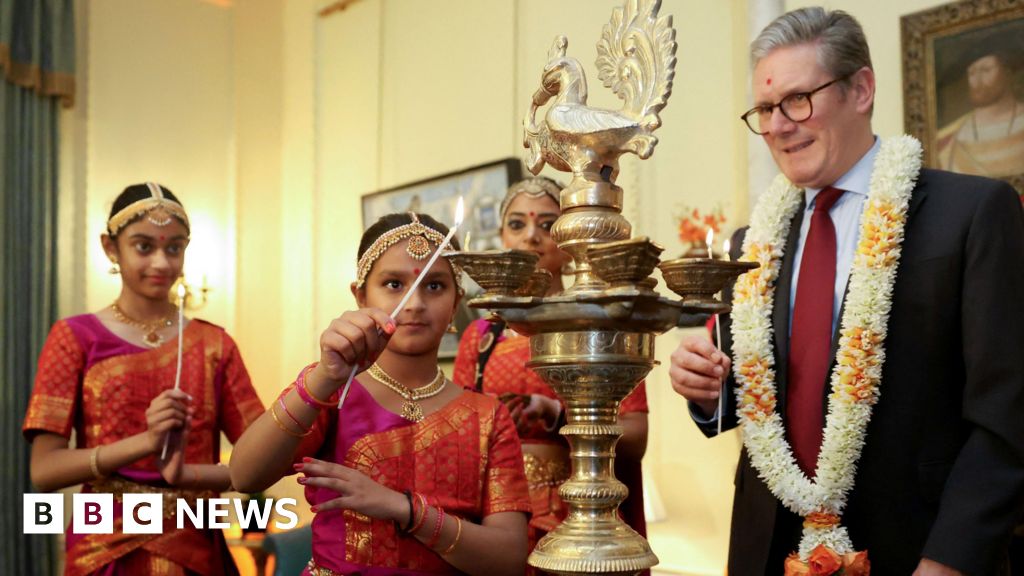ARTICLE AD BOX
By Iain Watson
Political correspondent, BBC News
Boris Johnson's U-turn over MPs' standards - and the suspension of Owen Paterson - has had Westminster in a spin.
So how did it happen? And how angry were the Tory MPs caught in the middle of it?
Unlike Margaret Thatcher, who famously declared her refusal to change direction when the going got tough, it turns out that this Conservative prime minister is very much for turning.
Whether it's free school meals in the holidays, or letting a health secretary go despite initially defending him, Boris Johnson has had few qualms about changing his mind in the face of public pressure.
Sometimes U-turns are politically astute - neutralising potentially toxic issues swiftly.
The U-turn over Owen Patterson, though, feels different.
The obvious difference is that Mr Johnson's own MPs were marched to the top of the hill, came under a barrage of hostile fire, and were then required - with reputations wounded - to march back down again.
And, privately, they are prepared to say what they think, with one usually loyal MP telling me: "It was moronically stupid."
There is something approaching a consensus on the Conservative benches that the whole affair has been more damaging to the prime minster, the government's reputation and to Owen Paterson himself than had the Standards Committee's recommended 30-day suspension been agreed.
As one very senior figure put it: "This has now become a question of the government's judgment."
And there is feeling that the handling of the issue by Downing Street is what gave it such prominence.
A long-serving MP said the incident had "further exposed Boris's lack of judgment", adding: "In fact, it has been one misjudgement after the other."
There was a lot of talk of the government moving the goalposts to help Owen Paterson on Wednesday. But by the end of the week, the football analogy has shifted.
The question now is how did the prime minister score such a spectacular own goal?
Campaign to avoid a by-election
After the damning standards report was released last week - with the verdict that Owen Paterson had breached lobbying rules on multiple occasions - his allies rallied round.
Members of his family and former ministers took to the pages of newspapers to argue that he hadn't had a fair hearing from the Parliamentary Standards Commissioner, Kathryn Stone.
Via WhatsApp and emails, fellow Conservative MPs were given the same message.
His allies worked on what would be the best approach to shield him from a 30-day suspension that could have triggered a by-election (though there were some doubts that enough constituents - 10% of voters in North Shropshire - would call for this, as there was widespread sympathy for him because of the loss of his wife).
One option was to amend the motion to suspend him - reducing the penalty from 30 days to nine - just beneath the threshold for triggering a by-election.
But one of those involved in the pro-Paterson campaign explained to me earlier this week why this was not pursued.
Apart from an unwillingness by Mr Paterson to accept any penalty at all, he said there was a danger that reducing the length of any suspension would look like politicians letting their mates off lightly and it would not play well with the public.
Little did he know, of course, the extent of the negative reaction to the other method under discussion and which was adopted.
Image source, House of Commons
Image caption,Owen Paterson sat in the Commons to listen to MPs debate his fate
My contact believed that if the case was made that MPs should be treated in the same way as other professionals - whose disciplinary bodies allow for a right of appeal - then this would seem like a sensible reform.
It was also thought likely that it would maximise the chance of cross-party support, as there was a feeling that the Standards Committee were taking too long to come up with their own proposals for change.
And as Mr Paterson had consistently complained about the process under which he had been investigated, then a new system would, in effect, mean a new hearing.
Once the broad thrust of the amendment had been agreed on Monday, the question for the MP's allies was whether this would be likely to pass.
At this stage the looming political disaster could have been averted.
What was happening behind the black door in Downing Street was crucial.
Who was to blame?
Some weeks ago, before the publication of the standards report, allies of Mr Paterson spoke to the prime minister, but I'm told he showed little interest at that stage.
Now, though, the former cabinet minster's allies said they had received nothing but encouragement from No 10.
One of them told me: "If Boris didn't want to do it, he shouldn't have done it. He should have told us that."
And, he added, had the PM vetoed the whole idea at the beginning of the week, it would not have gone ahead.
But Downing Street was nowhere near as united as Mr Paterson's allies might have imagined.
Severe scepticism about the plan was expressed by some officials, particularly over how it would play in the press. But they were overruled.
Commons leader Jacob Rees-Mogg is reported to have been influential in backroom discussions, and he publicly argued the case on Tuesday that the Standards Committee's recommendations could be amended.
But given the eventual outcome - an embarrassing climb-down - opinion on the Conservative benches is divided over who to blame.
Jacob Rees-Mogg then had the job of announcing the U-turn to Parliament
Some MPs have told me it was primarily the fault of chief whip Mark Spencer - that he should have, but failed to, stand up to Downing Street.
Others say they have huge sympathy with "the chief" - he was simply doing the PM's bidding.
One MP said Mr Johnson was under pressure from many of Mr Paterson's allies and he just wanted the problem to go away - so he tasked the chief whip with finding a solution.
With the final wording of the amendment drafted on Tuesday - after checks made informally with Commons officials to make sure it would not be ruled out of order - the whipping operation began.
Some reports suggest No 10's position was not finalised until after the prime minster enjoyed dinner with prominent Telegraph journalists on Tuesday night.
But, in truth, the decision to at least test the water had been taken before that.
The timeline
About 17:30 on Tuesday, Conservative MPs were approached - some face-to-face, some by text - by their whips.
They were given a summary of the yet unpublished amendment in very approving terms and asked whether they would be willing to add their names to it.
From my conversations, however, there seemed to have been quite a bit of pushback.
Some said it looked like a wrecking amendment, while others expressed more general concerns about what was being proposed, even if they had some sympathy with changing the standards system.
Conflating those changes with the Paterson case was seen as unwise by some MPs. There were predictions this could end in tears.
But despite those concerns - and to the surprise, even shock of some - at 11:30 on Wednesday, the day of the vote, MPs were told there would be a three line whip (although one MP acerbically observed he had learned about it from the Daily Telegraph first).
This was seen by some as a sign of Downing Street weakness, not strength, as there was speculation that without the imposition of a formal whip, enough Conservative MPs may have abstained in the vote to kill the plan.
Whatever the case, it was clear that it was not a happy Parliamentary Conservative Party that trooped through the Commons voting lobbies on Wednesday.
Image source, UK Parliament/Jessica Taylor
Image caption,Opposition MPs were angry - and bemused - by the government's move
Some said the whipping operation had been quite "light" but others reported that they had felt under pressure to toe the line.
One MP - who said he had two sleepless nights as he considered how to cast his vote - said he had never seen so many gloomy-looking colleagues.
A number of MPs witnessed the government's law officers having what appeared to be an animated discussion with a government whip.
Abstentions, rebellions and no-shows eventually reduced a Conservative working majority of 81 to just 18.
Some Conservatives felt that Mr Paterson and his allies were partly responsible for the narrowness of the victory.
Some of the 2019 intake of Conservative MPs said that Mr Paterson had not personally canvassed their support, that the "old guard" were taking them for granted and that the campaign to shield him was "arrogant".
That unease grew when they saw his television interviews following the vote.
One of them summed up the mood thus: "He showed no contrition."
Another of the 2019 intake told the BBC: "It's frustrating to have my reputation potentially damaged by a man who doesn't even know my name."
A long-serving colleague added: "Perhaps the party's elder statesmen should learn from the street judgment of the new intake, who come from a wider range of backgrounds."
There had been no organised rebellion - indeed one rebel was surprised to see some colleagues vote against the government rather than just abstain.
And some abstainers have told me the Standards Committee chairman, Labour's Chris Bryant, had swayed them sit on their hands as he set out the case against the former cabinet minister.
One MP, who in the end did follow the three-line whip, said that Mr Paterson's breach of the lobbying rules wasn't just "egregious", it was "rampant".
'They gave in to panic'
The following morning's newspapers - some of them usually sympathetic towards the government - were brutal.
There was little advance notice of the government U-turn that would see Mr Paterson face a vote on his future after all.
One of the MP's close friends spoke to him and they both agreed it would be better for him now to resign.
The pressure of the investigation, I am told, made it likely that he would stand down in any case, but he had wanted a new standards regime in place first, so he would have an opportunity to clear his name.
When that wasn't forthcoming, he saw little point in staying on and he had indeed been urged by his family to stand down.
Those who know him well are clear that he is still grief-stricken over his wife's death.
But his allies believe the government has done itself immeasurably more harm in U-turning than in just taking the political hit.
"They gave in to panic," one of them said.
Education Secretary Nadhim Zahawi says admitting a mistake over the plans was the "grown-up thing" to do
Labour, the SNP and the Liberal Democrats would not co-operate with setting up a new system.
But a very senior MP maintains that a new committee would not have been necessary to give MPs a new right of appeal.
This could have been done by a change in standing orders, and could have be limited to those facing 10 days or more suspension - that is, those who would be at risk of fighting a by-election under the "recall" system.
One Paterson ally felt that the detail of the case would have had little cut through with the wider public - unlike U-turns on school meals or on Covid measures, which have a tangible effect on their lives.
As they often have a low opinion of MPs in any case, so the government, in his view, could have ridden out the row over the rule changes.
But it is the backtracking that gave the issue rocket boosters, they added.
"The public don't like incompetence."
The theories
So why did the PM take the political risk in the first place? There are almost as many theories are as there are MPs.
Some say Mr Johnson had a "human reaction" and wanted to help Mr Paterson out.
Others say he wanted to get redoubtable campaigners, such as Iain Duncan Smith and David Davis, off his back.
Some say he was distracted by the COP26 climate summit in Glasgow, or misled by the chief whip over levels of support for Mr Paterson.
"I really would cut the PM some slack," said an opponent of the changes, pointing out that the prime minister had a lot on his mind.
But there are more Machiavellian theories too.
His former aide Dominic Cummings has suggested that he PM very much had a hound in this fight - that it would benefit him to knobble Standards Commissioner Kathryn Stone.
This is completely and forcefully denied by Downing Street. They say they have had no indication, for example, that Ms Stone wants to investigate the controversial and costly refurbishment of Downing Street - the subject of an active investigation by the Electoral Commission.
But a senior MP suggested that getting changes to the standards system was far more important to Mr Johnson than the fate of his Tory colleague.
So, to unlock cross party talks on this subject, "he threw Owen under a bus".
Another said: "Owen was now expendable."
'Downing Street in the spotlight'
What is true, though, is that some ministers certainly wanted to see the back of the Standards Commissioner and have said so privately.
They would certainly have seen this as a bonus.
Some of them expected the Standards Committee and the Commissioner to resign in the wake of Wednesday's vote.
Indeed, Business Secretary Kwasi Kwarteng publicly stated: "It is difficult to see what the future of the commissioner is."
Instead, Ms Stone and the Standards Committee dug in.
And now, rather than the behaviour a former cabinet minister coming under scrutiny, it is the Downing Street operation - and the prime minister's own judgment - that are in the spotlight.

 3 years ago
57
3 years ago
57








 English (US)
English (US)